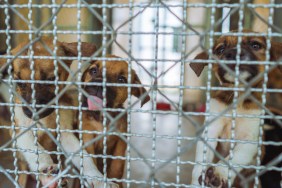
In Israel, a revived bill would raise Israeli dog parents’ annual registration fee from NIS 50 to NIS 3,500; or just over $989 USD.
First written by United Torah Judaism (UTJ) lawmakers, the bill was presented as a “tit for tat” for Israel’s recent tax on plastic utensils. Now with prime minister Benjamin Netanyahu’s return to office, the bill has strong legislative support. Originally drafted in April 2022, the bill is “an environmental tax” for neutered and spayed dogs.
Raising the registration fee to mitigate climate change
In addition to the rate hike, “owners of at least two dogs would have to pay NIS 7,000 per year,” according to The Jerusalem Post. Justifyingly, UTJ lawmaker Moshe Gafni says, “[the] environmental fee will reflect the great damage done to the environment caused by raising dogs.”
Interestingly, the bill rationalizes the large rate hike using the “polluter pays” principle. Commonly seen in environmental law, the principle says pollution producers are financially responsible for mitigating the effects.
Initially, the bill was seen as a “troll” towards the outgoing government. However, with Netanyahu returning to office, the bill’s revival now represents “ part of a cultural worldview on environmental protection.” Specifically, the bill cites a 2017 US report that claims “ research from across the world indicates that raising pets, especially those who are fed processed meat, carries serious ecological implications.”
Politicizing climate change at dog parents’ expense
Furthermore, the lawmakers behind the bill say, “[The government] did not touch the serious environmental destruction caused as a result of the consumption and behavioral habits of a segment of the Israeli population…” Instead, they say the former government focused “only on Israelis of a lower socio-economic class.”
Not surprisingly, the bill mostly affects Israel’s large urban centers. For example, Tel Aviv registered over 39,000 dogs in 2020. Contrastingly, Beitar Illit in the ultra-Orthodox West Bank has the country’s lowest dog population. Additionally, Tel Aviv also has the highest number of homes with multiple dogs, with 2,998. Unfortunately, it seems that cat parents won’t be spared, either. The bill, if passed, will expand to include other household pets.
The bill may not eventually pass, but if it did the effects would be significant. Hopefully, the Israeli government can find a more equitable way to address climate change.









